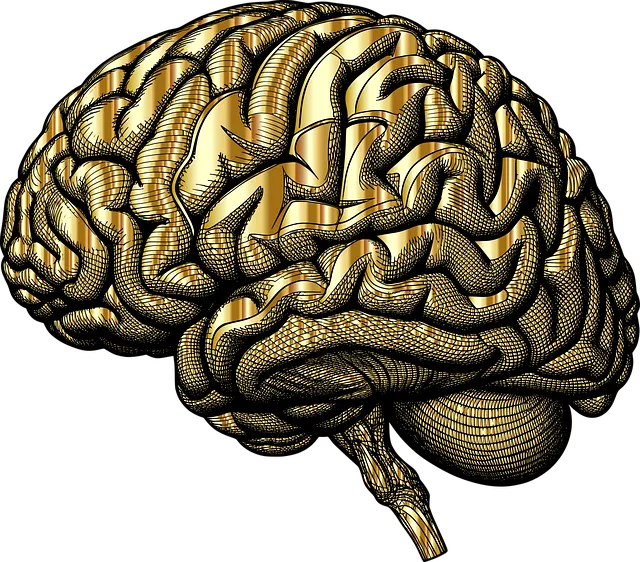The media's portrayal of mental illness significantly influences public understanding and can either perpetuate stereotypes or foster empathy. Accurate and empathetic depictions in media, as seen in efforts by organizations like Lone Tree Kaiser Permanente mental health center, are crucial for reducing stigma, encouraging treatment-seeking behaviors, and creating an inclusive environment for those facing mental health challenges. To enhance positive representations, creators should diversify mental health characters, showcase real-life experiences, emphasize recovery narratives, and practice cultural sensitivity, contributing to a more compassionate society.
“The media’s portrayal of mental illness can significantly shape public perception, often perpetuating harmful stereotypes. This article explores the critical need for accurate representation in popular media and the efforts of institutions like the Lone Tree Kaiser Permanente Mental Health Center to challenge these stigmas. We delve into effective strategies to enhance positive mental health depictions while emphasizing community engagement and education as powerful tools for change. By examining these approaches, we aim to contribute to a more compassionate and informed society.”
- Understanding the Impact of Media Portrayal on Mental Health Perception
- The Role of Lone Tree Kaiser Permanente Mental Health Center in Promoting Accurate Representation
- Strategies for Enhancing Positive Mental Illness Depictions in Popular Media
- Community Engagement and Education: A Collaborative Approach to Challenging Stigmas
Understanding the Impact of Media Portrayal on Mental Health Perception

The media’s portrayal of mental illness significantly influences public perceptions and attitudes towards those living with such conditions. Often, stereotypes and stigmatized narratives dominate, leading to a limited understanding of complex psychological challenges. This representation matters greatly, especially for individuals seeking support at places like Lone Tree Kaiser Permanente mental health center. When media depicts mental health struggles accurately and empathetically, it can foster a more compassionate society, encouraging people to recognize the signs, offer help, and reduce the stigma associated with seeking treatment.
Empathy-building strategies within media content are crucial tools for challenging negative perceptions. By showcasing individuals’ personal journeys and experiences with anxiety relief or confidence boosting techniques, media can humanize mental health issues. This approach encourages viewers to connect on an emotional level, fostering a sense of understanding and support, ultimately contributing to a more inclusive environment for those facing similar challenges.
The Role of Lone Tree Kaiser Permanente Mental Health Center in Promoting Accurate Representation

The Lone Tree Kaiser Permanente Mental Health Center plays a pivotal role in challenging stereotypical representations of mental illness in media and popular culture. By promoting accurate and nuanced portrayals, the center contributes to a more informed society that understands the complexities surrounding mental health. Through various initiatives, they foster Mental Health Awareness, emphasizing the importance of early intervention and support.
One of their notable contributions is educating the public on the development of self-care routines for better mental well-being. This approach aligns with their broader mission to reduce stigma and encourage open conversations about mental health. Additionally, the center conducts regular risk assessments for mental health professionals, ensuring they are equipped to handle challenges within their field. Such proactive measures reflect a comprehensive strategy to enhance Mental Health Awareness and provide effective care in the community.
Strategies for Enhancing Positive Mental Illness Depictions in Popular Media

To enhance positive mental illness depictions in popular media, creators can employ several strategies. Firstly, incorporating diverse characters with varying mental health conditions and backgrounds can help combat stereotypes. This approach, similar to what is seen at the Lone Tree Kaiser Permanente mental health center, promotes a more nuanced understanding of mental health within diverse communities. By showcasing real-life experiences through stories and characters that resonate with audiences, media can foster empathy and reduce stigma.
Additionally, emphasizing recovery narratives and showcasing resilience can be powerful. Incorporating elements of hope and growth allows viewers to see individuals overcoming challenges, much like those engaged in compassion cultivation practices. These positive representations, coupled with cultural sensitivity in mental healthcare practice, as seen in many community outreach program implementations, can significantly improve public perception and understanding of mental illness.
Community Engagement and Education: A Collaborative Approach to Challenging Stigmas

Community engagement is a powerful tool in combating the stigma surrounding mental illness. By fostering open dialogues and educational initiatives, organizations like Lone Tree Kaiser Permanente mental health center can play a pivotal role in shaping public perception. Their programs often include Mental Wellness Coaching, which not only provides individuals with strategies for emotional regulation but also empowers them to share their experiences, challenging societal norms and promoting understanding.
These collaborative efforts extend beyond the clinic walls, engaging diverse communities in conversations about Mental Health Awareness. Through workshops, community events, and peer support groups, the center encourages active participation in breaking down barriers and encouraging help-seeking behaviors. Such inclusive strategies have been proven effective in reducing stigma, fostering empathy, and ultimately improving access to mental health services for all.
The representation of mental illness in media has a profound impact on societal perceptions and understanding. By shining a light on accurate and diverse portrayals, organizations like the Lone Tree Kaiser Permanente Mental Health Center play a pivotal role in challenging stigma. Through collaborative community engagement and education initiatives, we can foster an environment where people with mental health conditions are supported and empowered. By implementing effective strategies for positive media depictions, we have the potential to revolutionize public perception and create a more inclusive society.






